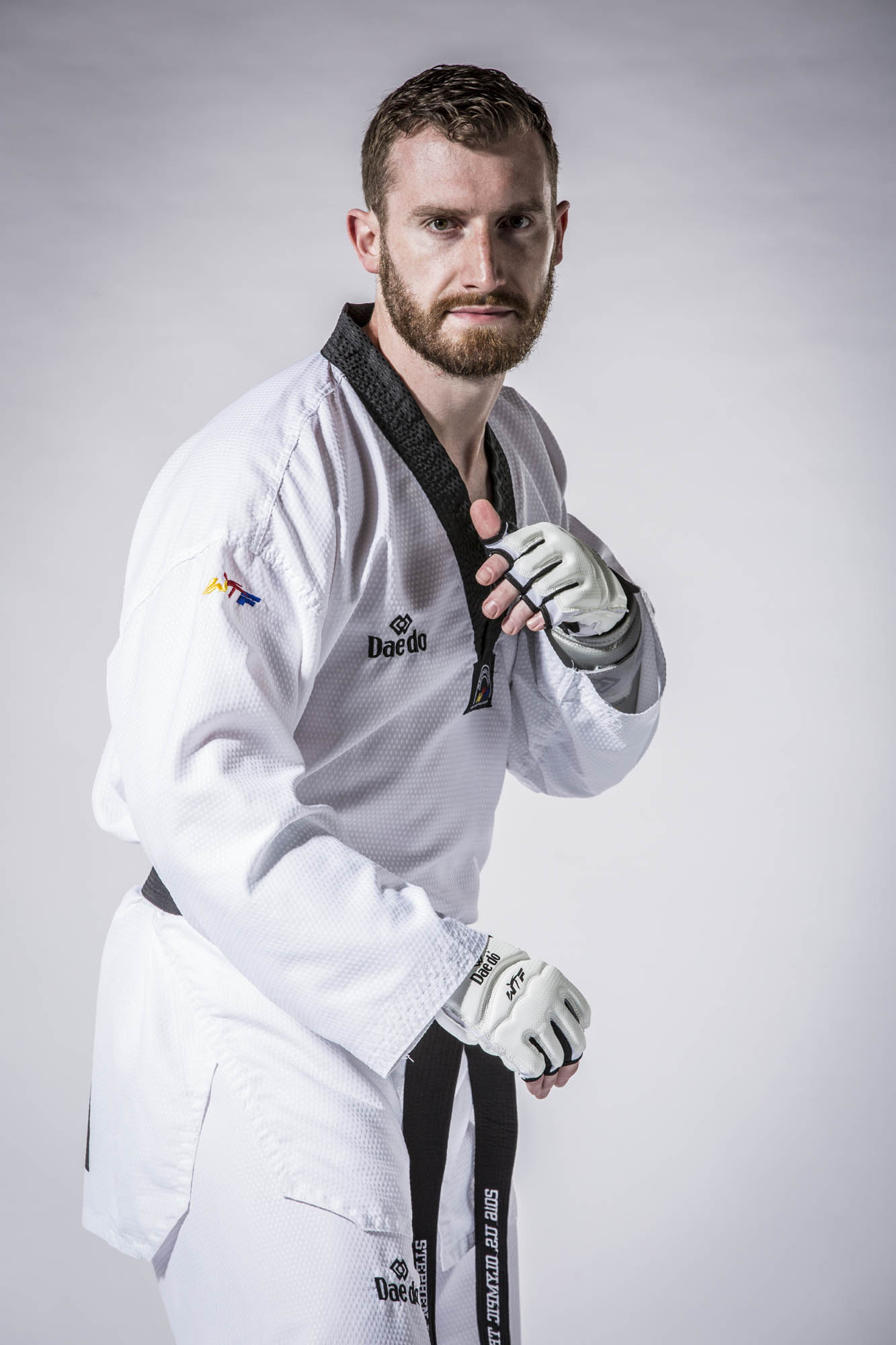
RIO DE JANEIRO (BP) — When Stephen Lambdin makes his Olympic debut on Saturday (Aug. 20), he’ll partly owe it to Michelangelo, the Teenage Mutant Ninja Turtle.
 “I originally got started in taekwondo because I actually wanted to be a ninja turtle,” Lambdin told Baptist Press. “I started when I was 6 years old. I bugged my parents about it until they finally caved.”
“I originally got started in taekwondo because I actually wanted to be a ninja turtle,” Lambdin told Baptist Press. “I started when I was 6 years old. I bugged my parents about it until they finally caved.”
Lambdin may not have achieved his ninja goal, but he has reached the pinnacle of his sport. And his aim as he competes on the world’s biggest stage is to honor God through the process.
“My primary goal is to act and compete in such a way that glorifies my Savior,” he said. “The beautiful part about the Olympics is it’s watched all around the world. If I behave in such a way that somebody just happens to ask, ‘Oh man. There’s something special about him. I wonder what it is,’ I can give testimony.”
From his early days as a taekwondo beginner in Texas, Lambdin quickly fell in love with the sport. For him, it’s the epitome of what sports should be — one person against another, with the results largely based on who prepares the best.
Lambdin was a natural. He won tournament after tournament as a boy and a teenager, but then struggled when he reached junior nationals, losing his first match there several years in a row. Finally, in 2002, he won junior nationals for the first time and advanced to the junior world championship.
The international competition was tougher than he expected and was an important turning point in his career. He drew an opponent from Korea in his opening-round match.
“The guy really worked me over,” Lambdin said. “He beat me like a drum.”
Taekwondo matches are three rounds, but the referee stopped this one in the middle of the second because Lambdin was being beaten so soundly. He got a concussion in the match and a bit of counsel from his coach, Sherman Nelson, afterwards.
“Look, this is God telling you that you have a choice here to make,” Nelson told him. “You got kicked in the teeth. You can either get up, get back on that horse and train even harder for God’s glory, or you can quit. There’s no other option.”
Other coaches weren’t as kind, telling Lambdin instead that he needed to give up taekwondo entirely.
“God really put it on my heart to go home and train harder,” Lambdin said. “I genuinely believed I could do it.”
Lambdin became a Christian at a young age after his father shared the Gospel with him. As he grew as an athlete, he also grew in his faith, learning to trust God in times of trial as well as in times of abundance.
One of his biggest trials came in 2010 when he ruptured the Achilles tendon in his right leg. After having it repaired, he tore it again. The doctor had to do a cadaver graft on it the second time, because it was so badly shredded.
Rehab was possible, but dicey. If Lambdin didn’t do everything the way he was supposed to, the risk of him not being able to walk right was high. His future in taekwondo was very much in jeopardy. Even his parents encouraged him to focus on the rehab and forget about his athletic pursuits for a while.
“God really put it on my heart, this stubborn pigheadedness of, ‘No. I’m going to get better. I’m going to get back into the ring. I don’t care what it takes,” Lambdin said.
He was originally told it would take a year for him to begin competing again. Six months later, he was back in the ring.
“It was not only a year of me growing in leaps and bounds in my faith and my ability to trust God,” Lambdin said. “I think it’s definitely one of the biggest parts of my testimony. Realistically, most athletes that have gone through that never get to compete again.”
That’s part of the testimony that Lambdin wants to share in Rio. A gold medal would certainly help in doing so. He envisions the opportunity to speak about Jesus Christ in press conferences, talking about what the Lord has done in his life.
“I mean, to have the opportunity to reach that many people would be a huge blessing,” Lambdin said. “I cannot think of a better honor than being able to give testimony to such a vast, vast audience of people, potentially large groups of people that have never even heard the Gospel.”
















